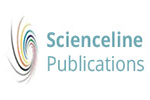(2021) The Effect of Different Dietary Energy and Protein Sources on Blood Profile of Crossbreed Holstein Dairy Cows Raised in Small Stake Holder Farms. World's Veterinary Journal. pp. 307-312. ISSN 23224568 (ISSN)
|
Text
WVJ 11(2) 307-312, June 25, 2021.pdf - Published Version Download (365kB) |
Abstract
The study aimed to evaluate the effect of protein and energy supplementation on the biochemical blood parameters in Holstein cows. The effect of energy and protein supplementation used corn and soybean meal was evaluated on biochemical blood profile in three groups of Holstein cows raised in small stakeholder farmers in Yogyakarta from February to May 2020. Thirty multiparous Holstein cows were allocated to three treatment groups, namely T0 in which the cows fed by the basal diet from the local farmer as well as the T1 (3.5% energy and protein supplementation) and T2 (5% energy and protein supplementation), in which the cows were fed by added energy and protein supplementation. The diets designed for the treatment groups were different from the basal diet by adding two additional ingredients which were soybean meal and corn meal in purpose to depress the stress from adaptive feeding. The results showed that the treated cows (T1 and T2) had significantly higher serum concentrations of glucose (T1 = 2.12 ± 0.49 mmol/L, T2 = 1.86 ± 0.40 mmol/L) rather than T0 (0.98 ± 0.48 mmol/L). The total concentration of serum protein and urea in treated cows was significantly lower than those with the basal diet. Total serum protein and urea in T1 were 0.69 ± 1.37 mmol/L and 7.21 ± 1.99 mmol/L, respectively; which they were 0.63 ± 0.06 mmol/L and 7.69 ± 3.07 mmol/L in T2, compared to the T0 which were 0.82 ±0.05 mmol/L and 7.69 ± 3.07 mmol/L, respectively. There was no significant difference in blood cholesterol among all treatment groups. In conclusion, the supplementations that varied in the proportion of energy and protein intake affected some biochemical blood profiles, such as glucose, protein, and blood urea nitrogen.
| Item Type: | Article |
|---|---|
| Keywords: | Biochemical blood parameters, Crossbreed Holstein cows, Energy supplementation, Protein supplementation, Traditional farmers |
| Subjects: | Q Science > Q Science (General) S Agriculture > SF Animal culture |
| Divisions: | World's Veterinary Journal (WVJ) |
| Page Range: | pp. 307-312 |
| Journal or Publication Title: | World's Veterinary Journal |
| Journal Index: | Scopus |
| Volume: | 11 |
| Number: | 2 |
| Publisher: | Scienceline Publication, Ltd |
| Identification Number: | https://doi.org/10.54203/scil.2021.wvj41 |
| ISSN: | 23224568 (ISSN) |
| Depositing User: | Dr. Alireza Sadeghi |
| URI: | http://eprints.science-line.com/id/eprint/449 |
Actions (login required)
 |
View Item |

